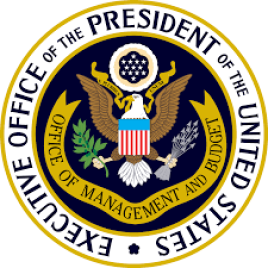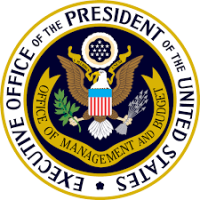Proposed Title 2/Uniform Guidance Revisions Released

Grants community, take note! The Office of Management and Budget (OMB) in the Oct. 5 Federal Register released proposed revisions to Title 2 of the Code of Federal Regulations, including the uniform guidance (2 C.F.R. Part 200). Stakeholders now have the opportunity to observe the planned revisions to begin preparing comments by the Dec. 4 comment deadline. While OMB has targeted releasing a final version of the revisions by the end of the year to become effective for financial assistance awards issued beginning in 2024, the progress of these revisions could be impacted should there be a government shutdown after Nov. 17.
The revisions address comments submitted to a request for information (RFI) in February (see “OMB Seeks Public Input on Potential C.F.R. Title 2 Revisions”). OMB revisions to Title 2 aimed to incorporate statutory requirements and administration priorities, and reduce agency and recipient burden. OMB also sought to clarify its guidance by addressing sections that recipients or agencies have interpreted in different ways, and to rewrite applicable sections in plain English, improve flow and address inconsistent use of terms.
OMB received 1,250 comments in response to the RFI. The proposed revisions are numerous, and they not only affect the uniform guidance, but other parts within Title 2 including Part 1 (About Title 2 of the Code of Federal Regulations and Subtitle A); Part 25 (Universal Identifier and System for Award Management); Part 170 (Reporting Subaward and Executive Compensation Information), Part 175 (Award Term for Trafficking in Persons); Part 180 (OMB Guidelines to Agencies on Governmentwide Debarment and Suspension (Non-procurement)); Part 182 (Governmentwide Requirements for Drug-Free Workplace (Financial Assistance)); and Part 183 (Never Contract with the Enemy).
OMB generally maintained the current numeric structure of the current uniform guidance (although numerous changes were proposed within individual provisions that could affect current citation references), but it did propose to add a new provision at §200.217 on whistleblower protections. This provision would state that “an employee of a recipient or subrecipient may not be discharged, demoted, or otherwise discriminated against as a reprisal for disclosing to a person or body described in paragraph (a)(2) of 41 U.S.C. 4712 information that the employee reasonably believes is evidence of gross mismanagement of a federal contract or grant, a gross waste of federal funds, an abuse of authority relating to a federal contract or grant, a substantial and specific danger to public health or safety, or a violation of law, rule, or regulation related to a federal contract (including the competition for or negotiation of a contract) or grant.”
One of the major changes contained within the pre-publication draft is a proposal to raise the single audit threshold from $750,000 to $1 million. OMB noted that it reviewed audit submission data as well as economic data when determining the increase to this threshold.
Some other key changes of interest:
- raising the de minimis indirect cost rate from 10% to 15% to “allow for a more reasonable and realistic recovery of indirect costs, particularly for new or inexperienced organizations that may not have the capacity to undergo a formal rate negotiation, but still deserve to be fully compensated for their overhead costs”;
- removing the existing requirement in §200.414(h) for all indirect cost rates to be publicly available on a governmentwide website;
- generally changing the term from “nonfederal entity” to “recipient or subrecipient,” unless specifying that a provisions applies to an entity that is not a federal entity;
- changing the equipment and supply thresholds from $5,000 to $10,000.
- no longer requiring prior federal agency written approval for 10 types of costs to reduce federal agency and recipient burden (e.g., real property, equipment, direct costs, entertainment costs, exchange rates, memberships, participant support costs, selling and marketing costs and taxes);
- amending the language for several new definitions, and adding new definitions for “continuation funding,” “for-profit organization,” “key personnel,” “participant,” and “prior approval”;
- enabling federal agencies to issue information about awards in other languages;
- allowing tribes to use their own procurement policies at §200.317 (now only allowed for states); and
- making major revisions to Appendix I, Full Text of Notice of Funding Opportunity, as well as §200.204, to simplify and clarify the grant application process, and provide for the inclusion of an executive summary of less than 500 words.
OMB, in the pre-publication version, further suggested areas where it may make additional revisions in future updates. Specifically, it welcomed additional comments from the public on these topics:
- establishing specific audit requirements for for-profit entities, which are not subject to the requirements of Subpart F;
- incorporating the requirements of National Security Presidential Management 33 (NSPM-33) on research security requirements;
- providing additional guidance in 2 C.F.R. concerning the relationship of specific aspects of the guidance to loans and loan guarantees;
- establishing mechanisms to automatically adjust certain thresholds due to inflation or other triggering events (where permitted by law);
- removing additional prior approval requirements;
- challenges related to negotiating indirect costs, working with cognizant agencies or any other topics related to indirect costs that could be addressed in future updates; and
- expanding the guidance in Subpart F to include more specific requirements on the scope of an audit (“proper perspective”) so that agencies have additional contextual information to guide them in resolving audit findings.
Stakeholders should begin now reviewing the proposed changes to determine how they may affect their programs going forward and consider preparing comments if necessary. Thompson Grants will provide more in-depth coverage in coming weeks on these proposed revisions, through both articles and in training discussions. Stay tuned!
Join us for our following Thompson Grants events:
Virtual Advanced Federal Grants Forum | Oct. 25-26, 2023 | Virtual Event
Thompson Grants Workshop: Procurement | Nov. 16, 2023 | Virtual Event



